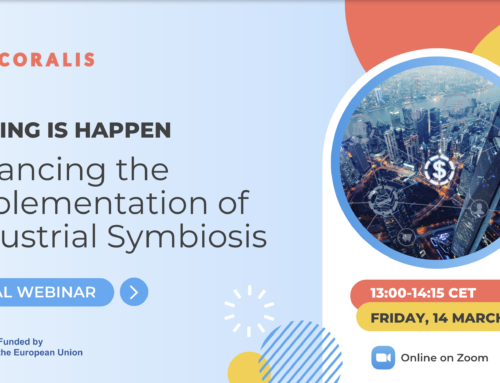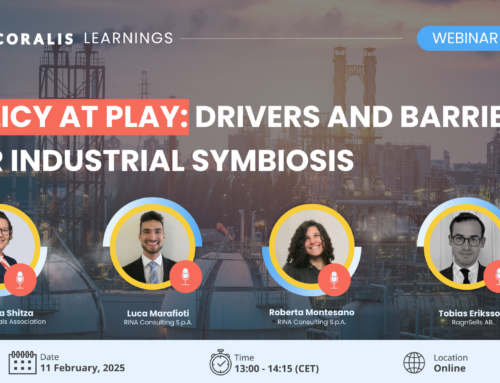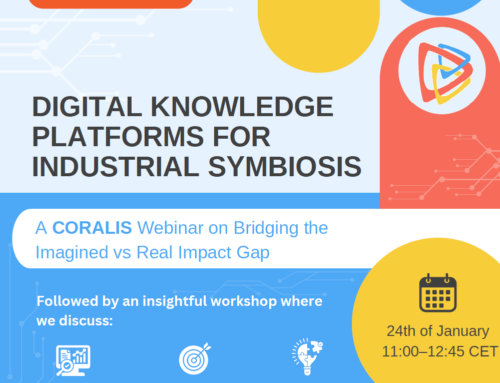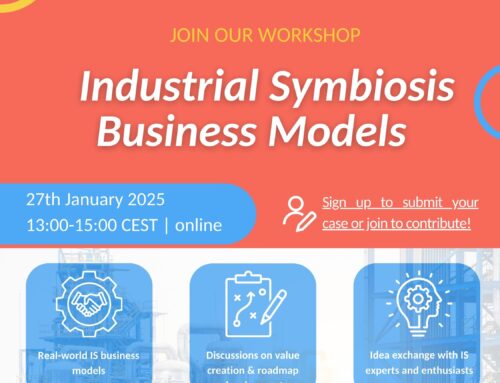The upcoming 18th Society and Materials (SAM) conference emphasizes climate and environmental impacts. It will showcase Life-Cycle Analysis (LCA) and Materials-Flow Analysis (MFA) methodologies to explore the repercussions of various components and enhance sustainable solutions. The conference has invited submissions spanning science, technology, engineering, mathematics (STEM), alongside social sciences and humanities (SSH), which will be presented and deliberated upon by attendees.
Our project CORALIS is going to be participating in the SAM conference through a project titled as “Prospective environmental systems analysis tools for decision support in emergent socio-technical solutions for circularity – A review”, to which our project partners Linköping University, WA3RM AB, CIRCE, RISE, RINA-CSM have collaboratively contributed.
Date: Tuesday 14th-Wednesday 15th May 2024
Location: Jönköping University, Jönköping, Sweden
Find below the associated abstract:
Danna Persson 1,2, John Laurence Esguerra1, Thomas Parker1,2, Manuel Gómez 3, Maria Dolores Mainar Toledo3, Marianna Lena Kambanou 1, Annika Löwgren 4, Daphne Mirabile 5
1Department of Management and Engineering, Division of Environmental Technology and Management, Linköping University (LiU), Linköping, Sweden, 2WA3RM AB (private), Malmö, Sweden, 3Fundación CIRCE Centro de Investigación de Recursos y Consumos Energéticos, Zaragoza, Spain, 4Research Institutes of Sweden (RISE), RISE Research Institutes of Sweden, Gothenburg, Sweden, 5RINA Consulting – Centro Sviluppo Materiali (CSM), Roma, Italy
Email of corresponding author: danna.persson@liu.se
Abstract
Emergent socio-technical solutions for the recirculation of energy and materials are expected to contribute to sustainability. For example, these solutions may offer alternatives for high energy-intensive industries to produce low-carbon products and services. To what extent different alternatives may improve future conditions compared to current processes is unknown, but a thorough investigation of potential future impacts is a necessary first step when considering their adoption. Therefore, analysis of potential future environmental, social, and economic effects of emergent socio-technical solutions constitutes an important tool in decision-support for sustainable transitions. Prospective studies using environmental systems analysis tools aim at building the basis for informed decisions about the most desirable course of development, and the most appropriate choice of alternative in the context of emergent solutions that have yet to be deployed at industrial scale. Prospective environmental systems analysis studies, today majorly focusing on prospective life-cycle analysis, have been the focus of recent methodological developments. However, the extent to which and how these developments are applied in decision-making at company level is poorly understood.
This article reviews the scientific literature on the topic of prospective environmental systems analysis, in the period 1997 to January 2024, in fields relevant to the circular economy discussion, namely environmental science, energy, engineering, and others. This study then explores the relevance of the methodologies for performing prospective environmental systems analysis, as proposed in the literature, and takes the perspective of practitioners working with industrial symbiosis, to assess the pertinence of the methodologies proposed to be used by companies working with circular economy business models. Expert judgement comes from partner members in the Horizon 2020 financed project CORALIS (Grant Agreement No 958337), focusing on lifting managerial, technological, and economic barriers for industrial symbiosis.
Keywords: Socio-technical solutions, sustainability, circular economy, industrial symbiosis, prospective studies, environmental systems analysis tools
Find the CORALIS presentation here







